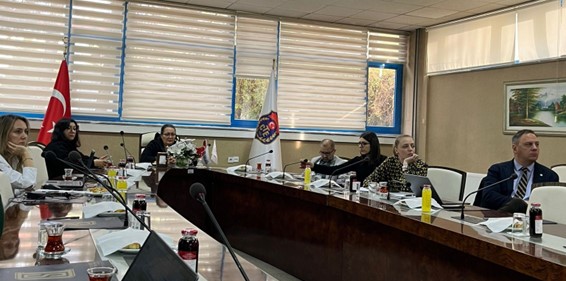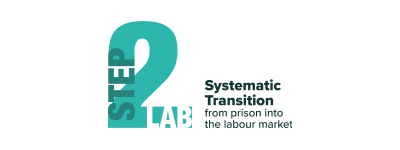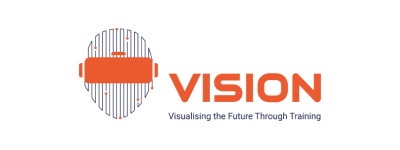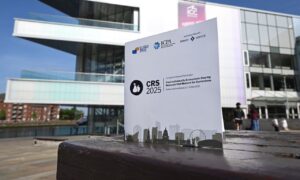Setting their aim to transform the rehabilitation process for vulnerable groups, including forcibly displaced persons, asylum seekers, and individuals under judicial community supervision with substance use issues, five European organisations joined efforts to develop an innovative training programme enhanced by virtual reality.
Within the probation system, professionals tasked with the rehabilitation and reintegration of probationers often face a significant hurdle—the language barrier. Socially vulnerable individuals, such as refugees or foreign individuals lacking access to training in their native languages, encounter difficulties in developing essential skills.
An emerging solution to this challenge can be found in Virtual Reality (VR) technology, which has proven effective in treating psychological disorders and facilitating skill development in areas like emotion recognition, regulation, communication, and navigating high-risk situations. The adaptability of virtual reality to create user-friendly, language-independent materials represents a noteworthy breakthrough.
The TRAIVR project has been dedicated to exploring this opportunity to transform rehabilitation approaches for vulnerable groups. Starting in 2020, this transnational initiative has developed four scenarios that employ a cognitive-behavioural approach to teach essential skills such as stress management, decision-making, moral and ethical reasoning, and coping with peer pressure.
Utilising a gamified approach, these scenarios are designed to elicit triggers, prompting participants to actively engage with situations and reflect on their choices. In addition to these scenarios, the project created several other resources, including a comprehensive manual for trainers, providing detailed guidance on utilising the scenarios.

The commitment to accessibility has been a hallmark of TRAIVR, breaking down language barriers through user-friendly and language-independent materials.
This priority in addressing language barriers underscores the importance of inclusivity—an essential consideration for professionals working with forcibly displaced individuals who also have a criminal record, in their mission to offer a transformative avenue for rehabilitation amidst unprecedented challenges.
In preparation for the final phase, the TRAIVR partnership is also completing technical adjustments to optimise the user experience in VR training scenarios. The project was already implemented in Portugal (by IPS_Innovative Prison Systems) and in Turkey (by Ankara Probation Direcore), where the TRAIVR methodology was thoroughly tested in probation settings with the end-users.
The partners are currently finalising the change assessment model which will allow for the evaluation of the effectiveness of TRAIVR solutions in real-world applications. However, early results indicate positive outcomes, showcasing the potential impact of VR-enhanced training on rehabilitation and reintegration.
As the project reaches its conclusion, the consortium is finalising a comprehensive ‘Training of Trainers’ programme. This programme equips practitioners with the knowledge and skills necessary to implement the TRAIVR methodology effectively. Practitioners from Portugal, Romania and Turkey received training on leveraging TRAIVR technology, and the trainer’s manual guides them in providing personalised and constructive feedback within VR scenarios.
Learn more about this project

TRAIVR
Training of Refugee Offenders by Virtual Reality
The TRAIVR partnership is composed of organisations from Turkey (Baskent University and Ankara Probation Directorate), Portugal (IPS_Innovative Prison Systems), Germany (Becure GmbH), and Romania (European Strategies Consulting).
To learn more about the TRAIVR project, visit www.traivr-project.org
More Rehabilitation, Reintegration and Community Projects

STEP2LAB
Systematic Transition from Prison into the Labour Market

VISION
Visualising the Future Through Training

NEXT STEPS
Development and testing of a process chain for the placement of former detainees as specialists in the labour market

TRIANGLE
Secured digital education system for vocational skills for youngsters in closed institutions

PREVEX
Preventing Emotional and Sexual Abuse Among Young People

ViRTI
Virtual reality for training inmates

BLEEP
Blended Learning Environment for European Prisoners

VR4DRUG Rehab
Developing and Using Virtual Reality Technology for the Rehabilitation of Drug Users in Probation Services

Coding-OUT
Coding in prison as a valuable OUTside tool for employment

RE[ENTER]
Strengthening the capacity of criminal justice professionals and volunteers
Related news

IPS-partnered initiative using VR technology to reduce reactive aggression in prisons awarded “Best Innovation Project” in Romania
Read More »
Enhancing child-friendly juvenile correctional training across Europe: IPS presents key findings at CRS 2025
Read More »

